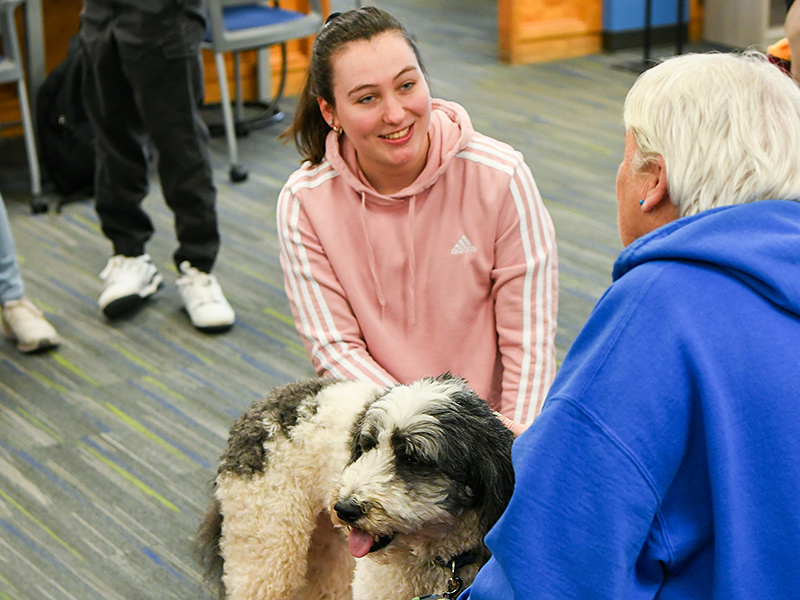4 tips to become a certified therapeutic recreation specialist
June 18, 2024

Recreational therapy (sometimes called therapeutic recreation) is an expanding field that uses activity-based interventions to help people with physical disabilities, sensory disorders, or mental-health needs fully participate in life.
About 17,000 professionals work as recreational therapists, and the U.S. Bureau of Labor Statistics predicts 4% job growth over the next decade. The median annual salary of certified therapeutic recreation therapists is about $57,000, and they find employment in a variety of settings: hospitals, nursing homes, assisted-living centers, camps, and schools, among others.
So, how do you know it’s the right profession for you? And once you make that decision, how do you get started?
- Inventory your strengths and preferences.
Do you enjoy being active? Are you creative? A helper by nature? Do you love people and communicate well with them?
Those interests, abilities, and traits are crucial to success as a certified therapeutic recreation specialist. To engage your clients, you’ll be developing interventions that could involve sports, music and the arts, outdoor adventure camps, animals, and gardening. The programs you create will enhance the quality of life and increase self-reliance for those with age-related ailments, anxiety and PTSD, autism, or physical disabilities. - Earn your bachelor’s degree.
The majority of recreation specialists hold a four-year degree in therapeutic recreation. Core classwork will teach you about how to develop programs that address the needs of different populations; methods of assessment and documentation; anatomy and physiology; psychology; and types of treatment.
Threaded throughout your classes, you will discover the tools you need to be an effective practitioner: leadership, communication, problem-solving, empathy, and patience. And you will make connections with other students soon to be entering the field with you, as well as with experienced professors. - Complete an internship.
Certification requires a 14-week, 560-hour internship supervised by a certified therapeutic recreation specialist. Your internship will open all kinds of doors.
It shows you what work settings you prefer (or don’t prefer). It lets you test out the practices you read about in the classroom. It challenges you to put your ideas into practice in the real world. And it allows you to form relationships with clients, co-workers, and supervisors. Internships build up your resume and can lead to full-time work once you graduate. - Pass the National Council for Therapeutic Recreation Certification exam.
The NCTRC Certification Exam is a three-hour, 120-question multiple-choice test. It may sound daunting to have your career progress riding on something that doesn’t even last half a day, but once you have wrapped up your studies and field work, you can look at this as just the last little hurdle you need to clear. Universities that offer a therapeutic recreation degree will leave you well-prepared for the exam.
Once you pass, you are on your way to a fulfilling, active career helping others live their best lives. In the process, you will be doing the same for yourself!
Fill out this form to learn about Aurora University.
Sources: